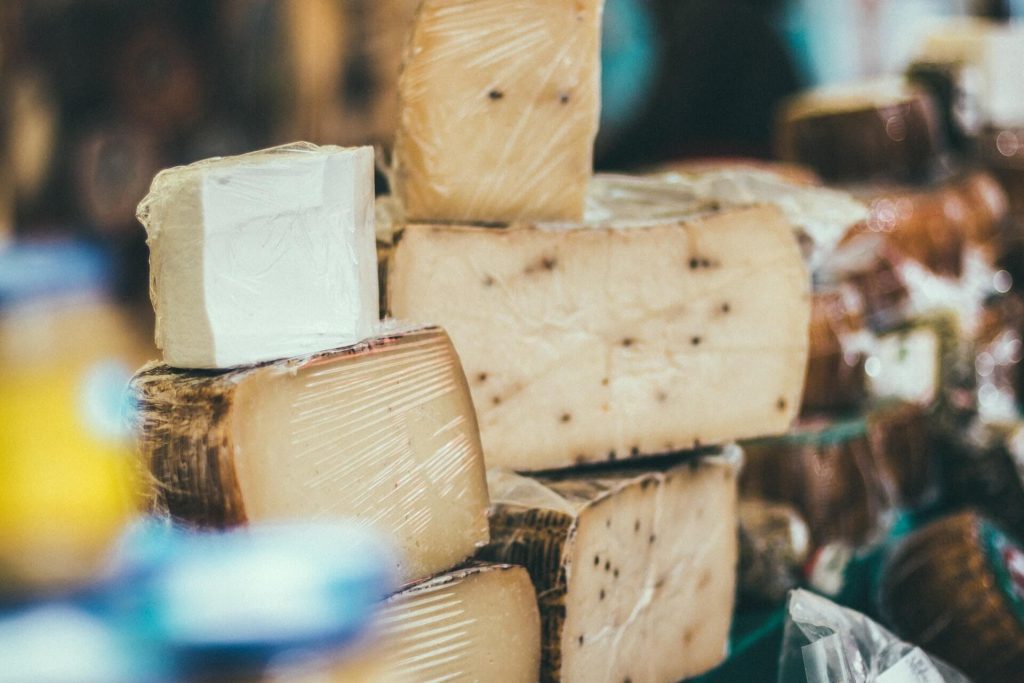Can you eat cheese on the carnivore diet? The answer is not as straightforward as you might think. While the carnivore diet primarily focuses on consuming animal products, some variations of this eating plan do allow for certain dairy products like cheese to be included. However, it’s important to understand that the carnivore diet aims to eliminate all plant-based foods and relies heavily on meat consumption for its nutritional benefits.
Cheese can be a source of protein and fat, which are essential components of a carnivore diet. Some proponents argue that high-quality, full-fat cheeses can provide valuable nutrients while still aligning with the principles of this dietary approach. However, it’s worth noting that not all cheeses are created equal in terms of their nutrient profile and potential impact on your health.
Ultimately, whether or not you choose to include cheese in your carnivore diet depends on your personal preferences and goals. It’s crucial to listen to your body and assess how different foods affect you individually. In the following sections, we will explore the potential pros and cons of incorporating cheese into a carnivore diet and offer guidance to help you make an informed decision based on scientific evidence and expert opinions.
Health Benefits of a Carnivore Diet
A carnivore diet, which primarily consists of animal products and excludes plant-based foods, has gained popularity in recent years. While it may seem unconventional, this eating approach claims to offer several health benefits. Here are some potential advantages of following a carnivore diet:
- Weight Loss: Many individuals report significant weight loss when adopting a carnivore diet. By eliminating carbohydrates and focusing on nutrient-dense animal proteins, the body enters a state of ketosis, where it burns stored fat for energy.
- Improved Mental Clarity: Some proponents argue that a carnivore diet can enhance cognitive function and mental clarity. They attribute this benefit to the elimination of potentially inflammatory substances found in plant-based foods.
- Reduced Inflammation: Inflammation is associated with various chronic conditions such as arthritis and autoimmune diseases. Advocates claim that by avoiding plant compounds like lectins and phytates, which can trigger inflammation in certain individuals, the carnivore diet may help reduce inflammation levels.
- Simplicity: A carnivore diet offers simplicity in terms of food choices since you mainly focus on meat products such as beef, poultry, fish, and eggs. This simplified approach to eating can make meal planning easier for some people.
- Increased Protein Intake: Animal products are excellent sources of high-quality protein containing essential amino acids necessary for muscle growth and repair.
The Role of Cheese in a Carnivore Diet
When following a carnivore diet, which primarily consists of animal products, many people wonder if cheese can be included. Let’s explore the role of cheese in this unique dietary approach:
- Is cheese allowed on a carnivore diet?
- Yes, some individuals on a carnivore diet do choose to include certain types of cheese.
- However, it is important to note that not all cheeses are suitable for the carnivore diet due to variations in ingredients and processing methods.
- Benefits of including cheese:
- Rich source of essential nutrients: Cheese provides valuable nutrients like calcium, protein, phosphorus, and vitamins A and B12.
- Enhances taste and variety: Adding different types of cheeses can help diversify your meals while adhering to the restrictions imposed by the carnivore diet.
- Convenient snack option: Many people find sliced or cubed cheese convenient for quick snacking when hunger strikes.
- Considerations when choosing cheese on a carnivore diet:
- Quality matters: Opt for high-quality cheeses made from grass-fed animals whenever possible as they tend to have better nutrient profiles.
- Minimal additives or processing: Look for natural cheeses without added sugars or artificial ingredients since these may not align with the principles of the carnivore diet.
- Moderation and personal experimentation: While some individuals tolerate dairy well on a carnivore diet, others might experience digestive issues or other adverse effects. It is crucial to listen to your body and adjust accordingly based on personal preferences and health considerations.
Although strict adherence to a pure meat-based regimen is central to the carnivore diet philosophy, some individuals do incorporate select types of cheese into their eating plan due to its nutritional value and versatility. Choosing quality options with minimal additives is key if you decide to include cheese while following this dietary approach. As with any dietary decision, it’s important to find the balance that works best for your body and goals.

Cheese Varieties Compatible with a Carnivore Diet
When following a carnivore diet, which primarily consists of animal products, you may wonder if cheese is allowed. While the carnivore diet typically excludes most dairy products due to their carbohydrate content, there are certain cheese varieties that can be enjoyed in moderation. Here are some cheese options that align with the principles of a carnivore diet:
- Hard and Aged Cheeses: These types of cheeses have minimal lactose content and lower moisture levels, making them suitable for consumption on a carnivore diet. Examples include cheddar, Parmesan, Gouda, and Swiss.
- Soft Cheeses: Some soft cheeses have lower lactose content compared to other dairy products and can be included sparingly in your carnivorous eating plan. Options like cream cheese, brie, camembert, or feta fall into this category.
- Blue Cheeses: Blue cheeses such as blue Stilton or gorgonzola contain negligible amounts of carbohydrates while providing rich flavors that can enhance your meals on the carnivore diet.
- Goat and Sheep Cheese: Goat and sheep milk-based cheeses tend to have lower lactose levels than cow’s milk-based counterparts. Look for goat cheese (chevre), feta made from sheep’s milk or goat’s milk (not cow’s milk), or pecorino romano for variety.
- Processed Cheese: Processed cheese slices or blocks often have fewer carbs compared to fresh varieties since they undergo additional processing steps during production.
Remember to consume these cheeses in moderation as part of an overall balanced approach to your carnivorous dietary regimen.
Tips for Incorporating Cheese into Your Carnivore Diet
When following a carnivore diet, the main focus is on consuming animal products. However, some individuals may wonder if they can include cheese in their meal plan. While cheese is derived from milk and not considered a true carnivorous food, it is still possible to enjoy it within the guidelines of this eating approach. Here are some tips for incorporating cheese into your carnivore diet:
- Choose high-quality cheeses: Opt for natural and minimally processed varieties of cheese to ensure you’re getting the most nutrients without any added preservatives or fillers.
- Go for full-fat options: Full-fat cheeses are rich in healthy fats and provide satiety, making them an excellent choice when following a low-carb, high-fat carnivore diet.
- Moderation is key: While cheese can be included in your carnivore diet, it’s important to consume it in moderation. Keep portion sizes reasonable to avoid excessive calorie intake.
- Experiment with different types: There are various types of cheeses available that vary in flavor and texture. Try different options like cheddar, mozzarella, feta, or blue cheese to add variety to your meals while staying within the boundaries of your carnivorous approach.
- Check for potential sensitivities: Some people may have lactose intolerance or dairy allergies that could interfere with their ability to incorporate cheese into their diet comfortably. If you experience any adverse reactions after consuming cheese, consider alternative sources of protein instead.
- Pair with meat-based dishes: Enjoying small amounts of cheese alongside meat-based dishes can enhance flavors and provide additional richness without straying too far from the principles of a carnivorous eating plan.
Remember that everyone’s dietary needs differ slightly; what works well for one person might not work as effectively for another individual on a similar journey towards optimal health through a carnivorous lifestyle.
Potential Drawbacks of Eating Cheese on a Carnivore Diet
When following a carnivore diet, which primarily consists of animal products, including meat and organ meats, incorporating cheese into your meals may come with some potential drawbacks. While cheese is often considered a staple in many diets, it’s important to be aware of the potential negative effects it can have when consumed as part of a carnivore diet.
Here are some possible drawbacks to consider:
- Carbohydrate Content: Most types of cheese contain minimal carbohydrates. However, certain varieties like processed or flavored cheeses may contain added sugars or other carb-rich ingredients that could disrupt ketosis or hinder weight loss goals.
- Lactose Intolerance: A significant portion of the population has lactose intolerance which means they lack the enzyme required to break down lactose (milk sugar). This can lead to digestive discomfort such as bloating, gas, and diarrhea if cheese consumption exceeds their tolerance level.
- Inflammatory Response: Some individuals may experience inflammation when consuming dairy products like cheese due to the presence of casein proteins or other components within dairy that their bodies react negatively toward.
- Caloric Density: Cheese is relatively calorie-dense compared to lean meats and fish typically consumed on a carnivore diet. Excessive consumption without considering portion sizes might result in an increased caloric intake leading to weight gain instead of desired fat loss.
- Potential Allergies: Certain individuals might have allergies or sensitivities specifically related to dairy products such as cheese which could manifest in symptoms such as skin rashes, itching, nasal congestion, or digestive issues upon consumption.
- Overconsumption Impact: Incorporating too much cheese into your meals may displace other nutrient-dense foods from your diet that provide essential vitamins and minerals necessary for overall health and well-being.
Remember that individual responses vary greatly depending on factors like personal tolerance levels and health conditions. It’s important to listen to your body and make adjustments as needed when including cheese in a carnivore diet.
Conclusion
In conclusion, while the carnivore diet primarily focuses on consuming animal-based products, including meat and fish, there is still room for debate when it comes to eating cheese. Some proponents argue that certain types of cheese can be included in a carnivore diet due to their high fat content and minimal carbohydrate content. However, others believe that since cheese is derived from milk, which is not an animal product strictly speaking, it may not align with the principles of the carnivore diet.
It’s important to remember that the decision to include or exclude cheese from a carnivore diet ultimately depends on personal preference and individual goals. If you choose to incorporate cheese into your carnivorous lifestyle, opt for high-quality cheeses with minimal additives and low lactose content. As always, consulting with a healthcare professional or registered dietician before making any significant changes to your dietary habits is recommended.
